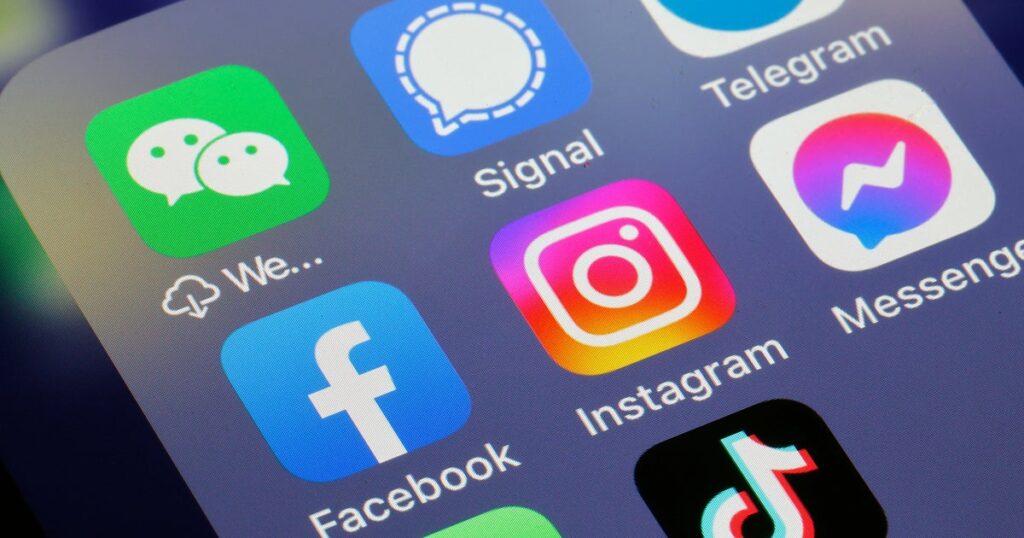Meta Platforms CEO Mark Zuckerberg took the stand Monday in a Washington, D.C., courtroom to defend his social media company from federal allegations that the technology giant is a monopoly.
Meta, the parent company of Facebook, Instagram and WhatsApp, is facing off with the Federal Trade Commission on Monday, for Day one of a landmark antitrust trial that could result in the company’s breakup. For Zuckerberg, the case could determine whether the business empire he started building while still a student at Harvard University will be forced to break apart.
The trial will be the first big test of the FTC’s willingness under President Trump to challenge Big Tech, a long-time target of Republicans. The lawsuit was initially filed against Meta — then called Facebook — in 2020, during Mr. Trump’s first term, before being amended in 2021.
In its complaint, the FTC accuses Meta of “anticompetitive conduct,” alleging that the company’s ownership of Instagram and WhatsApp gives it excessive control of the social media market.
“There’s nothing wrong with Meta innovating,” said Daniel Matheson, lead attorney for the FTC in his opening statements for the agency Monday, “It’s what happened next that is a problem.”
Purchased by Facebook in 2012 and 2014, respectively, Instagram and WhatsApp have grown into social media powerhouses.
To restore competition, Meta must part ways with Instagram and WhatsApp, the government agency says in court filings. The FTC also wants Meta to provide the government with prior notice for any future mergers and acquisitions.
With the landmark trial underway, here’s what you need to know.
How long will the Meta trial last, and who will testify?
The trial, which begins Monday in federal court in Washington, D.C., is expected to last several weeks.
U.S. District Judge James Boasberg will preside over the case, which could see a range of witnesses including Meta CEO and founder Zuckerberg; former Meta Chief Operating Officer Sheryl Sandberg; former Meta Chief Technology Officer Mike Schroepfer; Instagram co-founder Kevin Systrom; and executives from rival social media platforms.
What is happening in court today?
The FTC and Meta made their opening arguments on Monday, with witness testimony expected to start in the afternoon.
In his opening statement, lead FTC attorney Matheson said Meta was struggling to compete with the fast-growing WhatsApp and Instagram platforms and in buying them, the tech giant was “eliminating immediate threats,” to their market.
Meta said the company “did nothing wrong” by acquiring Instagram and WhatsApp. Meta attorney Mark Hansen said in his opening statement that the two apps have grown substantially under the tech company’s ownership and that there is no evidence to prove Meta is a monopoly.
If Meta had monopoly power, it would exercise control over pricing in the social media space, Hansen said. But Meta’s services are free, he noted. “How can the FTC maintain this monopolization case when [Meta] has never charged users a cent,” Hansen said.
After the opening statements, Zuckerberg was the first person called to the stand to testify.
What’s at stake?
The showdown is the most significant legal challenge brought against Meta in the company’s roughly 20-year history. If the FTC is successful, Meta could be forced to divest Instagram and WhatsApp. Instagram, which Meta has owned for over a decade, accounts for half of the company’s overall advertising revenue.
“Instagram has also been picking up the slack for Facebook on the user front, particularly among young people, for a long time,” Emarketer analyst Jasmine Enberg told the Associated Press.
“The trial also comes as Meta is trying to bring back OG Facebook in an effort to appeal to Gen Z and younger users as they join social media. Social media usage is far more fragmented today than it was in 2012 when Facebook acquired Instagram, and Facebook isn’t where the cool college kids hang out anymore. Meta needs Instagram to continue growing, especially as more advertisers think Instagram-first with their Meta budgets,” she added.
Meta, headquartered in Menlo Park, California, earned over $164 billion in revenue in 2024. Facebook and Instagram are the two most profitable social media platforms in the world.
In a statement issued Sunday, April 13, Meta said the “stakes could not be higher in this trial for U.S. consumers and businesses.”
What is Meta saying?
The social media company has called the FTC’s case “weak” and said it “ignores reality,” adding that it faces stiff competition from TikTok and YouTube. Both platforms outrank Facebook and Instagram in terms of how long users spend on each.
“Ultimately, an ill-conceived lawsuit like this will make companies think twice before investing in innovation, knowing they may be punished if that innovation leads to success,” Meta’s statement reads. “On top of it, this weak case is costing taxpayers millions of dollars.”
“The FTC’s lawsuit against Meta defies reality,” a Meta spokesperson told CBS MoneyWatch. “The evidence at trial will show what every 17-year-old in the world knows: Instagram, Facebook and WhatsApp compete with Chinese-owned TikTok, YouTube, X, iMessage and many others.”
“Regulators should be supporting American innovation, rather than seeking to break up a great American company and further advantaging China on critical issues like AI,” the spokesperson added.
The FTC did not reply to a request for comment.
When did this case get started?
The history of the Meta case stretches back several years. The FTC initially filed the suit in 2020 during President Trump’s first term in office.
In June 2021, U.S. District Judge James Boasberg dismissed the antitrust lawsuit brought by the FTC, claiming the lawsuits were “legally insufficient” and did not supply sufficient evidence to prove Facebook was a monopoly.
But the federal judge later cleared the path for the case to proceed after the FTC introduced more evidence in an amended complaint, according to The Washington Post.
contributed to this report.



